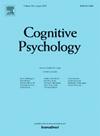Mind the gap: How incomplete explanations influence children’s interest and learning behaviors
Abstract
Children rely on others’ explanations to learn scientific concepts, yet sometimes the explanations they receive are incomplete. Three studies explore how receiving incomplete or complete explanations influences children’s subsequent interest and engagement in learning behaviors to obtain additional information about a topic. Children ages 7–10 (N = 275; 49% female, 51% male; 55% white) viewed question-and-answer exchanges about animal behaviors that included either a complete causal explanation of the behavior or an explanation that was missing a key step. Children rated how knowledgeable they felt after hearing the explanation (Study 1) or how much information was missing from the explanation (Studies 2 and 3) and reported how interested they were in learning more about the topic. They also completed two measures of learning behaviors: a book choice task (all studies) and a card choice task (Studies 1 and 2). In the book choice task, children opted to learn about the topics of the incomplete explanations more frequently than the topics of the complete explanations. However, there was no evidence of selective learning behaviors in the card choice task and children’s self-reported interest in learning more about each animal behavior was not directly related to the type of explanation they had received. Individual differences in children’s interest and learning behaviors were linked to verbal intelligence and domain-specific biological knowledge. Implications for the information-gap theory of learning and children’s learning in multiple contexts are discussed.

 求助内容:
求助内容: 应助结果提醒方式:
应助结果提醒方式:


